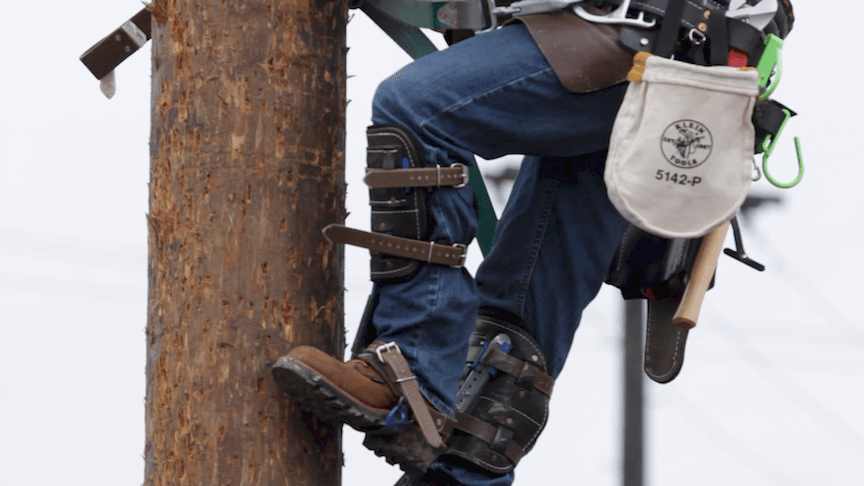As a lineman, you are responsible for maintaining and repairing electrical power lines and communication networks. This crucial role requires specialized tools that ensure safety, efficiency, and accuracy. In this article, we will outline the main tools that every lineman needs in order to perform their job to the best of their ability. Next, we will cover the importance of having high quality tools and staying organized, and then conclude with the benefits of keeping up with the industry.
Table of Contents
Protective Gear
Protective gear is the first and foremost essential tool for a lineman. This includes gloves, hard hats, safety glasses, and high-visibility clothing. The gloves protect your hands from electrical shock and cuts, while the hard hat protects your head from falling objects. Safety glasses protect your eyes from dust, debris, and harmful UV rays, while high-visibility clothing ensures that you are visible to other workers and motorists.
Climbing Gear
Climbing gear is essential for accessing elevated electrical power lines and communication networks. This includes a climbing belt, lanyards, and carabiners. The climbing belt provides support and stability while ascending and descending poles, while the lanyards and carabiners keep you securely attached to the pole. A lineman must have a comfortable and safe climbing harness to prevent injury while working at elevated heights.
Cutting Tools
Cutting tools are necessary for trimming trees, cutting wires, and performing other tasks that require cutting. Linemen must have a good quality pair of pliers, diagonal cutters, and wire cutters to perform these tasks. The pliers and diagonal cutters are used for gripping and cutting wires, while the wire cutters are specifically designed for cutting communication wires and electrical wires.
Pulling and Tensioning Tools
Pulling and tensioning tools are necessary for installing and repairing electrical power lines and communication networks. These tools include come-alongs, winches, and pullers. Come-alongs are used to tighten and secure cables and wires, while warn winches and pulleys are used to move heavy loads and apply tension to cables and wires.
Measuring and Testing Tools
Measuring and testing tools are essential for ensuring that electrical power lines and communication networks are functioning properly. Linemen must have a voltage tester, multimeter, and cable fault locator to perform these tasks. The voltage tester is used to measure the voltage of electrical power lines, while the multimeter measures electrical current, voltage, and resistance. The cable fault locator is used to locate faults or problems in communication networks.
Importance of High-Quality Tools
Having high-quality tools is essential for ensuring that your work is performed safely, efficiently, and accurately. Low-quality tools can lead to accidents, prolong the time it takes to complete a task, and result in subpar work. Investing in high-quality tools will pay off in the long run by reducing the likelihood of accidents, saving you time, and producing better results.
Keeping Your Tools Organized
Organization is key to a lineman’s success. A well-organized tool belt or bag makes it easier to find the right tool for the job, reducing the amount of time you spend searching for the right tool. In addition, keeping your tools organized ensures that they are protected from damage and are easy to transport.
Staying Up-to-Date with Industry Trends and New Tools
The electrical power and communication industries are constantly evolving. As a result it is important for linemen to stay up-to-date with the latest tools for lineman and techniques. Attending training sessions, trade shows, and seminars will help you stay informed about the latest advancements in the industry, hereby allowing you to make informed decisions about the lineman tools you use on the job.
In conclusion, having the right tools, keeping them organized, and staying up-to-date with industry trends and advancements are all essential for a lineman’s success. By taking these steps, you can ensure that you have the tools and knowledge you need to perform your job safely, efficiently, and accurately.

